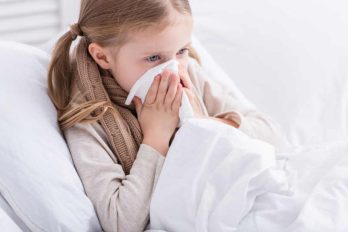Flu season is coming up fast, and your child may catch the virus even if they are vaccinated. It is important to pay attention to the signs and symptoms to ensure your child visits the pediatrician as needed. Now, you may be wondering if your child has caught a cold, the flu, or another virus. To help you determine your next step, here are several signs your child has caught the flu.
Lack of Appetite
A child suffering from the flu may not have much of an appetite, or they may not have an appetite at all. Your child may also experience nausea, vomiting, or diarrhea, which does not help with their appetite. Both could be a sign of the flu or stomach flu, so you want to have your child examined by a pediatrician to get an accurate diagnosis.
Respiratory Ailments
Your child may also show signs of respiratory ailments with the flu, such as a cough, runny nose, and sore throat. However, these are also symptoms of a cold and Covid-19, so you need to watch for other signs of the flu. If you are still unsure, their pediatrician can administer a flu test and a Covid-19 test to diagnose your child’s illness.
Body Aches
If your child has the flu, they may complain of body aches. The muscles in their back and legs may feel sore, but these aches are normal with the flu. In addition, your child may also experience a headache. Some children even have stomach aches with the flu, which also causes their loss of appetite. Unfortunately, a child with the flu is usually miserable.
Fatigue
You may notice your child is more tired than usual when they have the flu, especially if they are usually active and playful. The best thing you can do is allow your child to get the rest they need. They need to recharge their body and save their energy for fighting off the flu. In some cases, your child may feel dizzy and need to lie down.
Fever
A child with the flu may also have a fever as high as 103 degrees Fahrenheit to 105 degrees Fahrenheit. Their fever may also be accompanied by chills and the above symptoms, such as fatigue and body aches. If you are worried about your child’s body temperature, contact their pediatrician immediately.
It is important to note that symptoms of the flu can come on suddenly. If your child is showing signs of the flu or any other illness, schedule an appointment with Kids 1st Pediatrics. You can schedule an appointment online at kids1stpediatrics.net.



